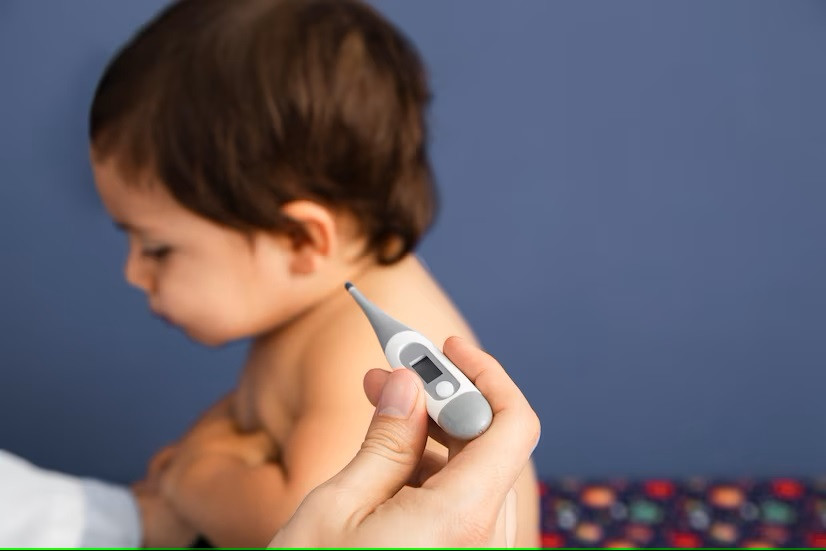Polio, also known as poliomyelitis, is a contagious disease that is actually rare. However, in early November 2022, polio was reported to have been found again in Pidie Regency, Aceh.
The case was discovered through RT-PCR tracing, where a 7-year and 2-month-old child experienced symptoms of paralysis in the left leg and fever. After examination, it was confirmed to be type 2 polio.
What is Polio disease?
The poliovirus is a type of contagious disease that causes polio. This virus spreads from person to person, with or without any symptoms.
In fact, since the polio vaccine was discovered in 1955, this disease has almost been eradicated. However, in some countries that do not have access to the vaccine, or due to vaccine refusal, the virus is at risk of reappearing.
Polio is caused by a virus called poliovirus that infects the throat and intestines. Its symptoms are similar to those of the flu and can spread to the brain and spinal cord, potentially causing paralysis.
Types of Polio disease
Polio affects the body in various ways, so the disease is categorized based on where the virus develops and attacks. The classifications are as follows:
- Abortive poliomyelitis: a polio infection that causes flu-like symptoms and digestive issues, lasting for a few days and not causing long-term problems
- Non-paralytic Poliomyelitis: a polio infection that causes aseptic meningitis, or swelling around the brain area. Symptoms tend to be more severe and require hospital treatment
- Paralytic poliomyelitis: A polio infection that occurs when the poliovirus attacks the brain and spinal cord, causing paralysis in muscles used for breathing, speaking, swallowing, and moving limbs
- Polioencephalitis: A rare polio infection that mostly affects infants and causes swelling in the brain
- Post-Polio Syndrome: Polio infection symptoms that reappear years after the initial polio infection
Symptoms of Polio disease
The poliovirus enters the body through the mouth or nose and then multiplies in the throat and intestines. In some cases, the virus will enter the brain and spinal cord, causing paralysis. Paralysis can affect the arms, legs, or muscles that control breathing.
Most people infected with polio do not have symptoms or have mild flu-like symptoms. Symptoms tend to vary depending on which part of the body the virus attacks.
Symptoms of Abortive Poliomyelitis
The symptoms of abortive poliomyelitis are similar to those of other common illnesses, with symptoms appearing 3–7 days after infection. Symptoms include:
- Fatigue
- Fever
- Headache
- Vomiting
- Diarrhea
- Constipation
- Sore throat
Symptoms of Non-paralytic Poliomyelitis
The symptoms of non-paralytic poliomyelitis are similar to those of abortive poliomyelitis, but there are additional symptoms, including:
- Stiff neck
- Pins-and-needles sensation in the legs and arms
- Severe headache
- Sensitivity to light
Symptoms of Paralytic Poliomyelitis
The symptoms of paralytic poliomyelitis are also similar to those of the above two types of polio, with additional symptoms such as:
- Muscle weakness throughout the body
- Sensitivity to touch
- Muscle spasms
- Paralysis in the arms and legs
- Difficulty breathing, swallowing, and speaking
Symptoms of Polioencephalitis
Extreme fatigue, anxiety, difficulty concentrating, and seizures are frequently present along with the symptoms of polioencephalitis.
Polio spreads very easily, even through direct contact with droplets when an infected person talks, coughs, or sneezes. The ease of transmission and spread can be reduced by getting the polio vaccine early, according to the established schedule.
If your child experiences the symptoms mentioned above, it is best to consult a doctor. Use a mask, clean all surfaces that might be contaminated, and regularly wash hands to prevent transmission.
If you need other medical advice or consultation, you can either visit a doctor or make use of the consultation features that are available in the Ai Care application by downloading the Ai Care application from the App Store or Play Store.
Looking for more information about other diseases? Click here!
- dr Nadia Opmalina












